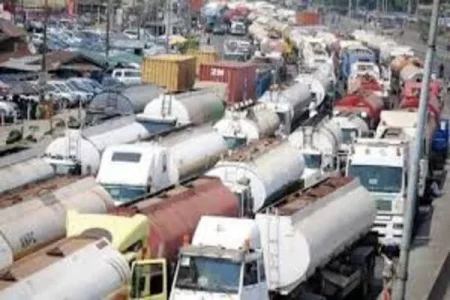
The Nigerian government has banned 60,000-litre fuel tankers from roads starting March 1, 2025, to curb tanker-related accidents. The decision follows a fatal explosion in Niger State. Stakeholders, including FRSC and NUPENG, reached a consensus on the ban to enhance road safety and petroleum transportation efficiency.
The Nigerian government, through the Midstream and Downstream Petroleum Regulatory Authority (NMDPRA), has announced a ban on 60,000-litre fuel tankers from operating on the country’s roads starting March 1, 2025. The move aims to reduce road accidents caused by heavy-duty petroleum trucks, which have led to multiple fatalities.
The decision follows a tragic petrol tanker explosion in Niger State on January 18 that claimed at least 50 lives. NMDPRA’s Executive Director, Ogbugo Ukoha, stated that the ban was agreed upon during a stakeholders’ meeting involving key agencies such as the Federal Road Safety Corps (FRSC), Department of State Services (DSS), and the National Union of Petroleum and Natural Gas Workers (NUPENG).
From March 1, no truck exceeding the 60,000-litre limit will be allowed to load at any Nigerian depot. The authorities emphasize that this policy was reached through a consensus among industry stakeholders and is part of broader efforts to ensure safer transportation of petroleum products.
Public reactions to the ban have been mixed. Some Nigerians applaud the government’s proactive stance in preventing future disasters, while others express concerns about potential disruptions to fuel distribution. Social media is abuzz with discussions, with many calling for further investments in safer transportation alternatives.
The NMDPRA reassures that it will continue working with all relevant bodies to implement safety measures and improve efficiency in the petroleum supply chain.




